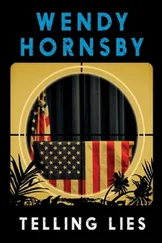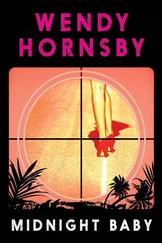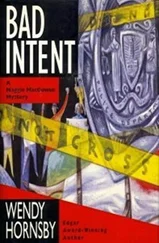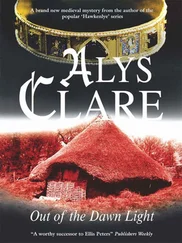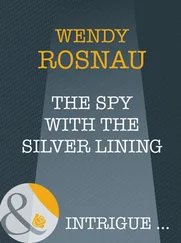“Fine,” I said, taking Jean-Paul by the hand. “Thank you.”
We wasted no time getting upstairs. Uncle Max followed us into our room.
“You know the sarge is going to take a hit for letting us wash,” he said. “He should have waited until we’d been checked for gunshot residue first.”
“Oui,” Jean-Paul said, slipping his arm around my waist. “But I prefer not to start a diplomatic firestorm. Maggie, will you join me in the shower?”
I smiled at him and said, “Oui.”
“See you downstairs,” Max said, retreating.
“Max?” I called after him. He stopped in the doorway and turned to me. “You never said why Kevin was here?”
“I’ll tell you later,” he said. “We need to get cleaned up before the detectives get here and stop us.”
Max was already downstairs when Jean-Paul and I went back down. The big man himself, the police chief, had arrived, and he didn’t look at all happy. I heard Max tell him, “Don’t be too hard on the sergeant for letting us clean up. I didn’t fire a gun, neither did my niece. And the boyfriend has diplomatic immunity so you can’t talk to him unless there are representatives from our State Department and his government present.”
Jean-Paul squeezed my hand. I leaned close to him and whispered, “Is that true?”
“Not exactly, but it sounds good, doesn’t it?”
The three of us were taken into separate rooms, Max and I for questioning and Jean-Paul to be out of earshot so that what we told the detectives about the events of the evening wouldn’t taint his own account, if the legalities of that ever happening could be sorted out. Jean-Paul volunteered to be sequestered in the kitchen so that he could start a pot of coffee; the chief thought that was just a dandy idea.
The chief, Tony Wasick, a good-looking man in his fifties, conducted my interview himself, in the dining room with the big doors closed.
“Miss MacGowen, what the hell has been going on here?” he asked, clearly piqued. “The body count from this address alone over the last two days has doubled my murder rate for the year so far. Throw in the burglary call overnight Thursday, and that makes your house the scene of the biggest crime wave we’ve had in Berkeley since I became chief five years ago. I know who you are and I know what you do. Have you pissed off some mobster with one of your TV shows and he’s come gunning for you? Are you up here hiding out, making life tough for me and my guys?”
“I’m sorry, but no,” I said. “My mom moved into a smaller place, and I’m only here to clear out the family house for her. Whatever is behind all the mayhem belongs entirely to you.”
“To me?” Like the rest of us, Wasick had been dragged out of bed in the middle of the night, and he looked like it. The first whiff of fresh coffee coming from the kitchen distracted him for a moment. He turned his attention back to me. “You want to explain that?”
“I can only speculate,” I said. “There seems to be something in this house that someone wants very badly. And I believe it has something to do with the murder of Trinh Bartolini over thirty years ago.”
“The Bartolini case. Jesus.” He let out an exasperated breath, paced off a tight half circle. “When I heard Kevin was shot at your house, and that his father-in-law was out front getting froggy, hell, I figured it was a personal thing. Never occurred to me that it could have anything to do with the Bartolini case. Talk about lost causes.”
“Kevin?”
“No, the Bartolini case,” he said. “There’s just not enough evidence left from the original investigation to work with. But Kevin won’t let it go.”
“Kevin has new evidence,” I said. “Your crime lab found DNA from three people on Mrs. B’s shirt,” I said. “That’s major evidence.”
“Sure.” Wasick did not sound convinced. Or maybe he was just tired. “And thirty years later, what are the odds we’ll find those three people?”
“The odds aren’t bad,” I said. “The victim’s son will give you a sample so you can segregate her DNA. For the other two, you might begin with the man who broke into my house tonight.”
He thought that over before he wrote something in his notebook. “The coroner will get a sample from the guy.”
“Chief Wasick?”
He cocked his head, looked up.
“What do you know about Chuck Riley?”
“That knucklehead?” He lifted a shoulder. “Not a lot. I know he was on the force for a while, but that was before my time. Now he works security at a bank in town.”
“You know he was the original detective on the Bartolini case,” I said. “If the Bartolini case is, as you said, a lost cause, is it because Chuck Riley botched the investigation?”
He smiled. “Who’s asking the questions here?”
A uniformed officer came through the kitchen door carrying two mugs of coffee. Grateful, Wasick wrapped his hands around a mug and blew on it until it was cool enough to drink. Revived a bit, he spent the next hour having me tell him, and retell him, about the shooting and the break-in and anything I knew about Larry Nordquist and Khanh Duc.
“Are you making a film about the Bartolini case?” he asked.
“No, absolutely not.”
“But you’ve been going around town asking questions about her,” he said. “If you’re not making a film, why would you do that?”
“Because that’s who I am,” I said. “And that’s what I do.”
“Too bad about the film.” He managed a little smile as he closed his notebook. “That was my only shot at being a movie star. And now you tell me it’s pfft . Gone.”
“You never know, Chief,” I said. “Are we finished?”
“For now.” He picked up his empty cup and headed toward the kitchen for a refill. With one hand on the door, he paused. “There will be more questions later. In the meantime, I’d appreciate it if you let us handle the media swarm gathering on your front lawn. We’ve had enough excitement for a while; let’s not invite a circus.”
“Suits me,” I said.
He saluted me with his cup as he pushed through the swing door and went into the kitchen.
I opened the dining room’s big double doors and looked out. Duc’s body still lay in the hall outside the door to Dad’s den, but someone had covered him with a yellow plastic sheet; his feet in black sneakers stuck out of the end. While I was with Chief Wasick, the crime scene technicians had arrived and gone right to work. I looked at their handiwork with dismay. Wherever bullets had lodged in the old lath-and-plaster walls, there were now foot-square gaps. Two big pools of blood, taped off, were soaking into the bare oak floor, the one under Duc still slowly oozing outward. Forget the simple house cleaning scheduled for later that morning. Now I needed to find bio-cleanup specialists to take care of the blood and a handyman to repair the walls. More time, more money, I thought, feeling guilty for even considering the practicalities of the aftermath created by that horrific night. I was sorry about Duc, though what happened to him was his own damn fault. I was deeply sorry for Kevin’s pain, but I’d had a message that he was out of surgery and was listed as stable so I could crawl safely away from the edge of panic and give in to the inevitable letdown.
A young woman technician swept past me, headed for the heater access hatch in the far corner of the dining room. She knelt on the floor and began dusting the hatch and the area around it for fingerprints. Duc wore gloves when he came in. But had the intruder Thursday night? Was Duc the intruder?
The tech caught me watching her. “You shouldn’t be here,” she said.
She was right, I was in the way. It would have been nice to be able to go upstairs and take a nap, but the stairway was blocked off by crime scene tape because Jean-Paul had fired down at Duc from the top step. So I collected my computer from the kitchen counter where I had left it charging the night before and went out to the front porch and curled up in one of the big wicker rockers. There were four uniformed officers in the yard, so I felt safe.
Читать дальше

